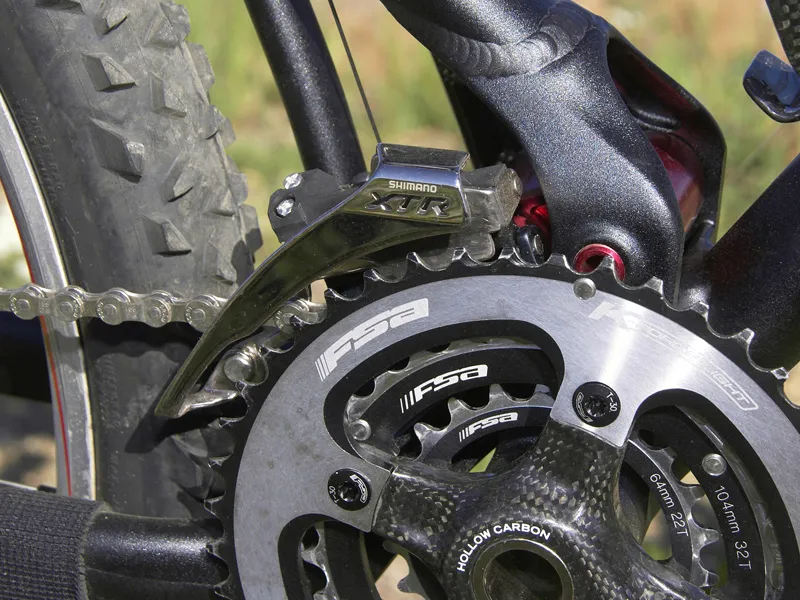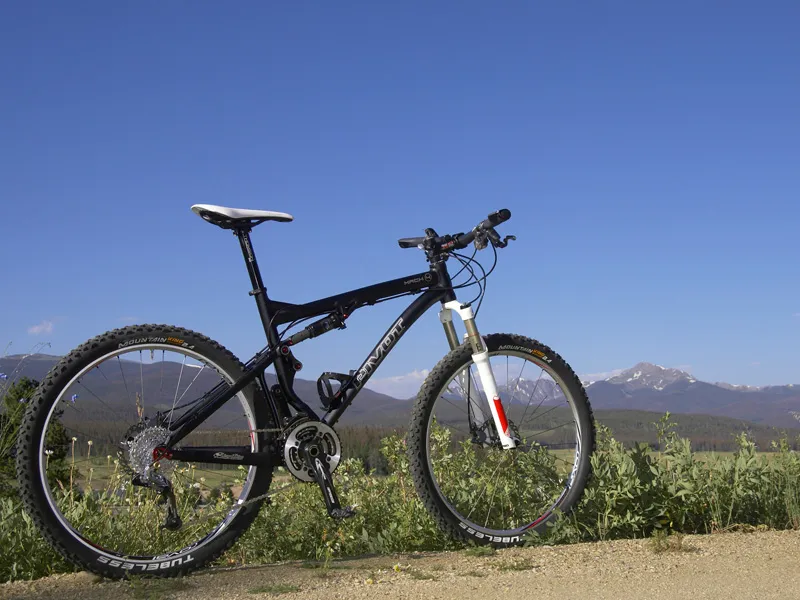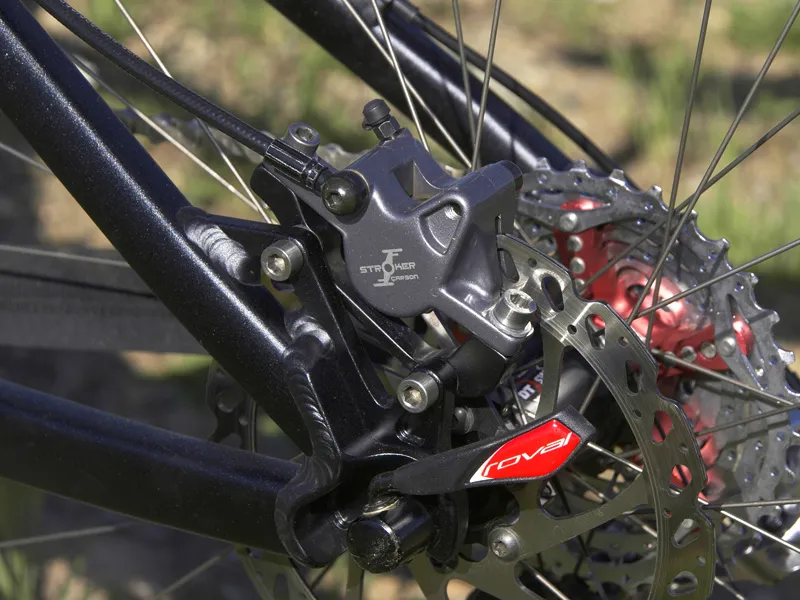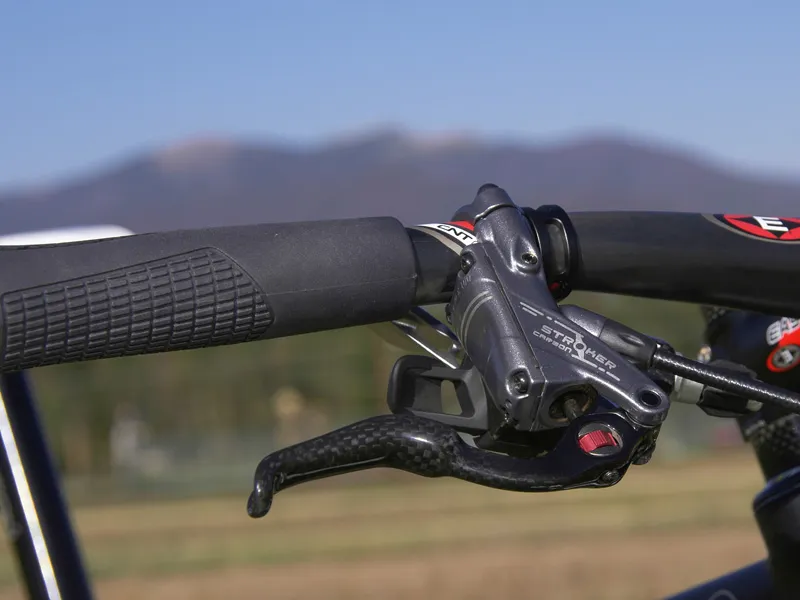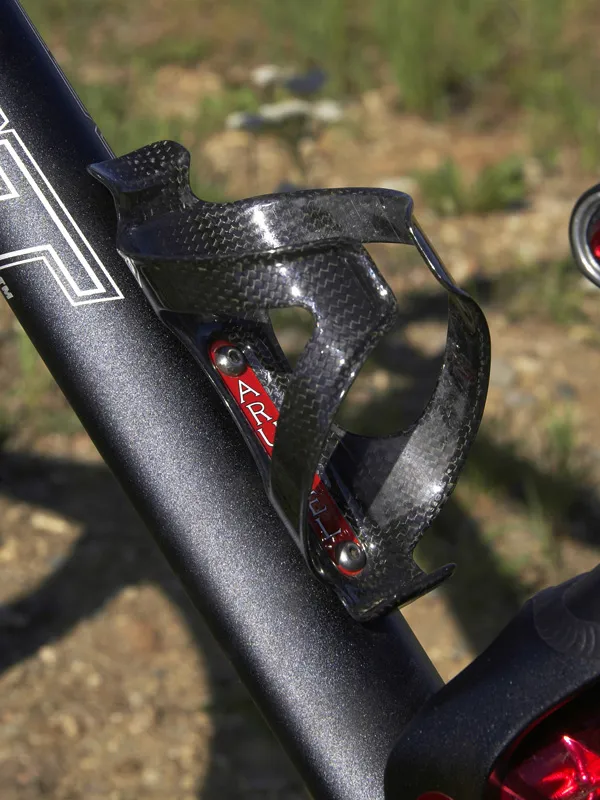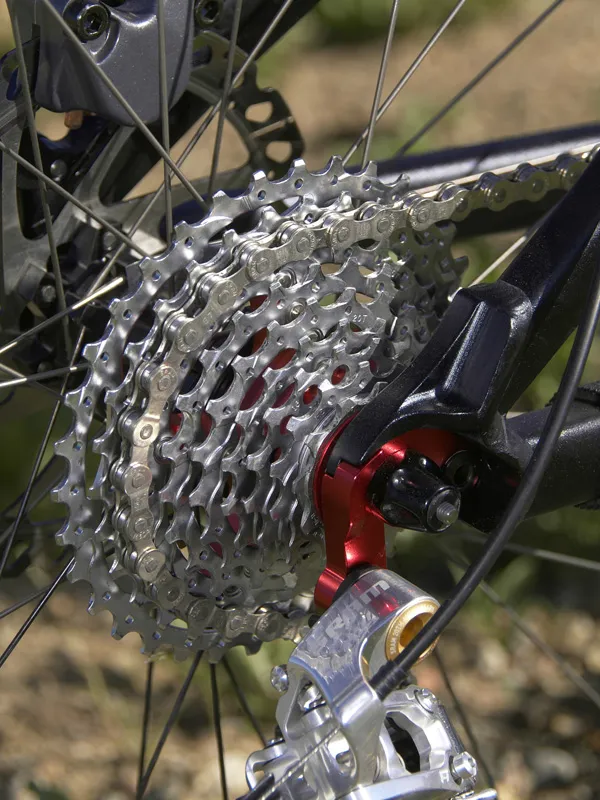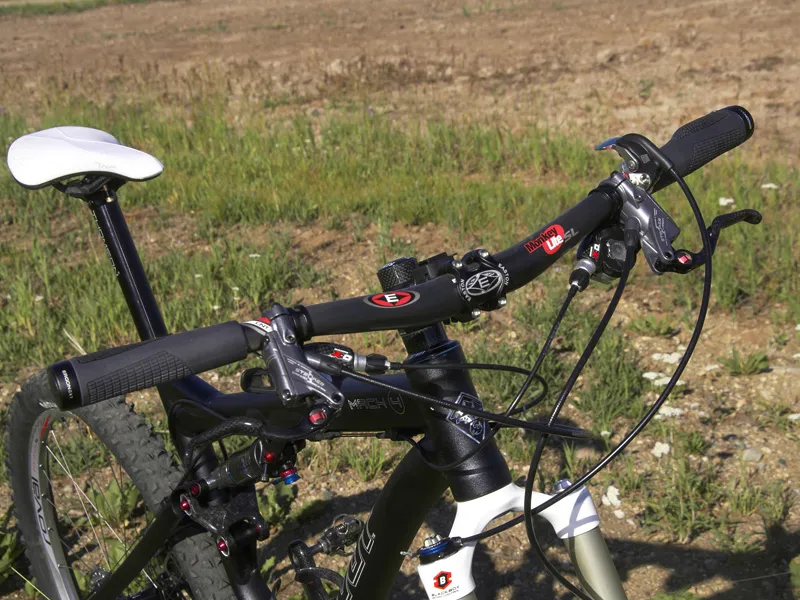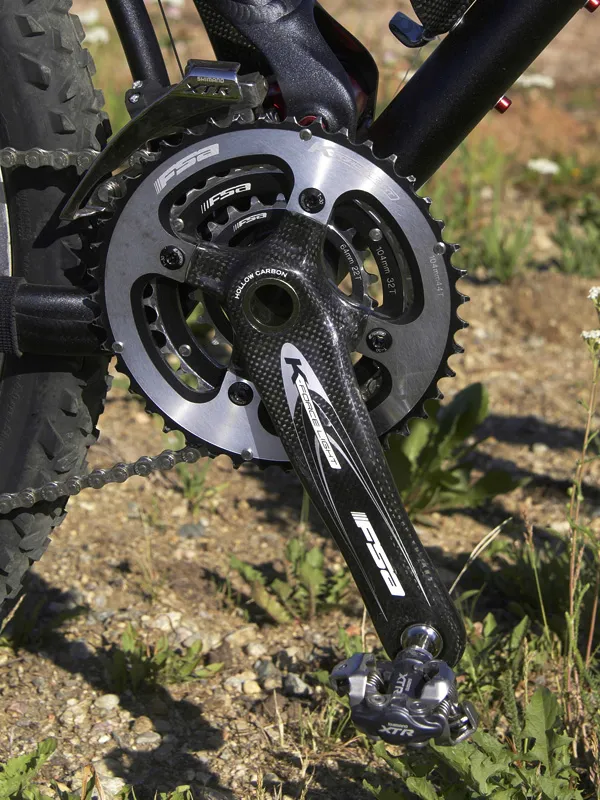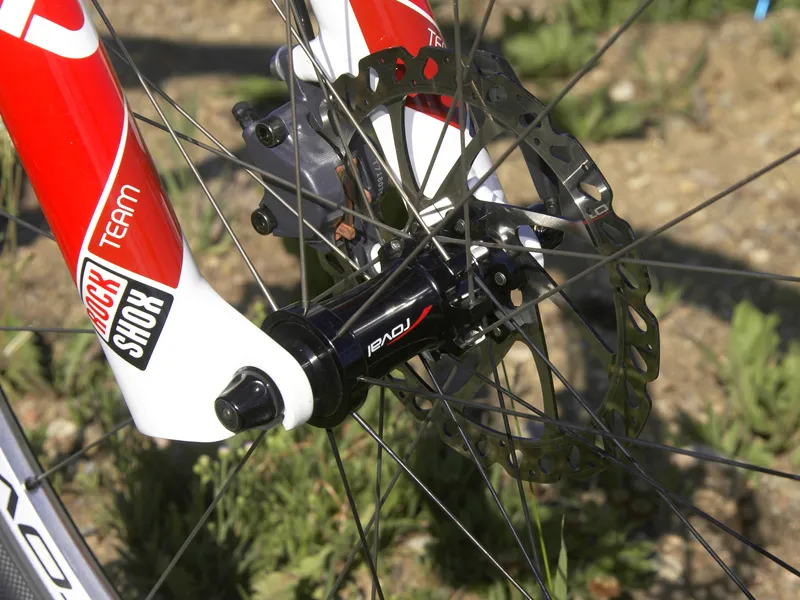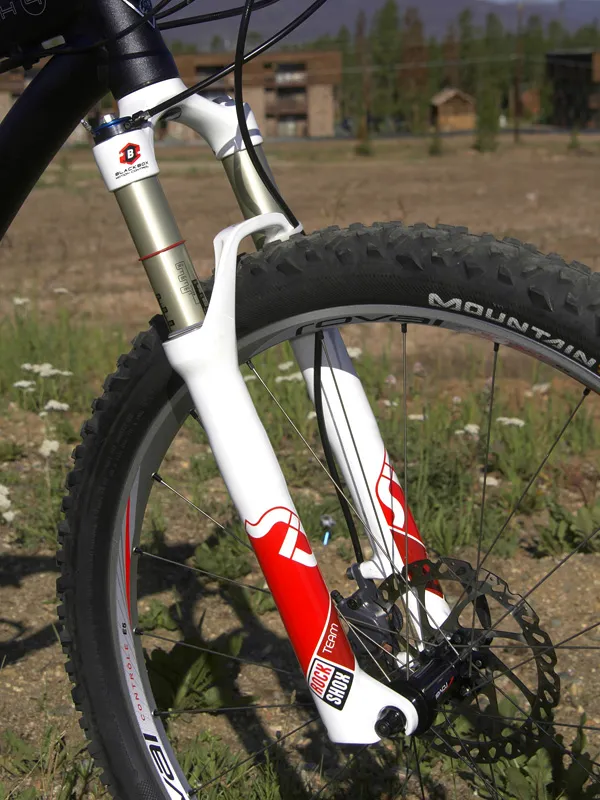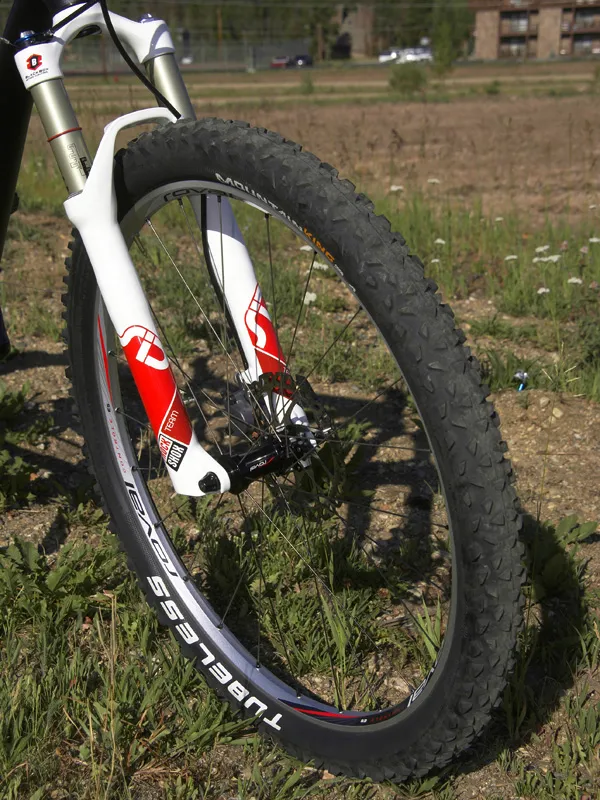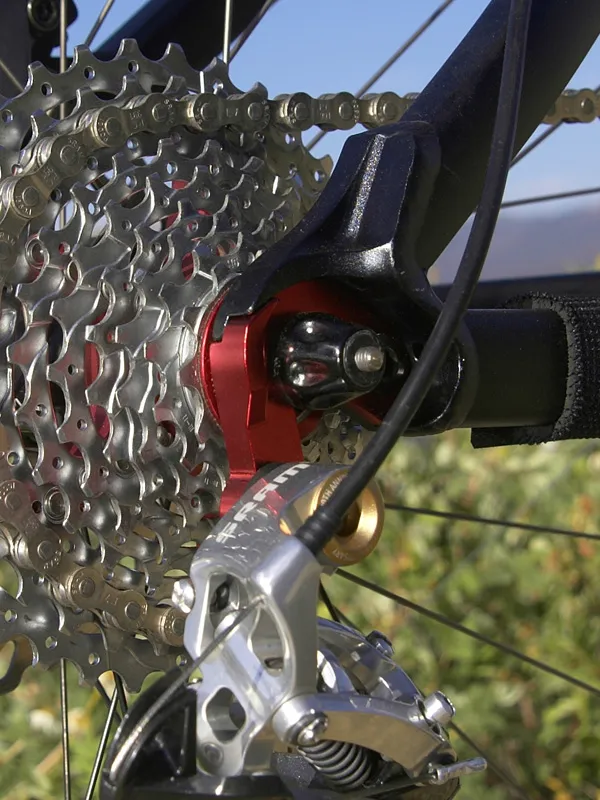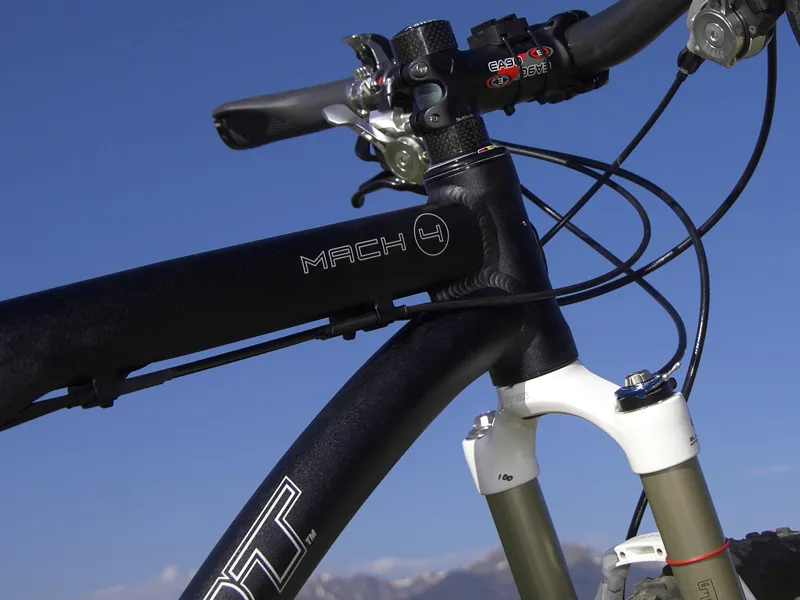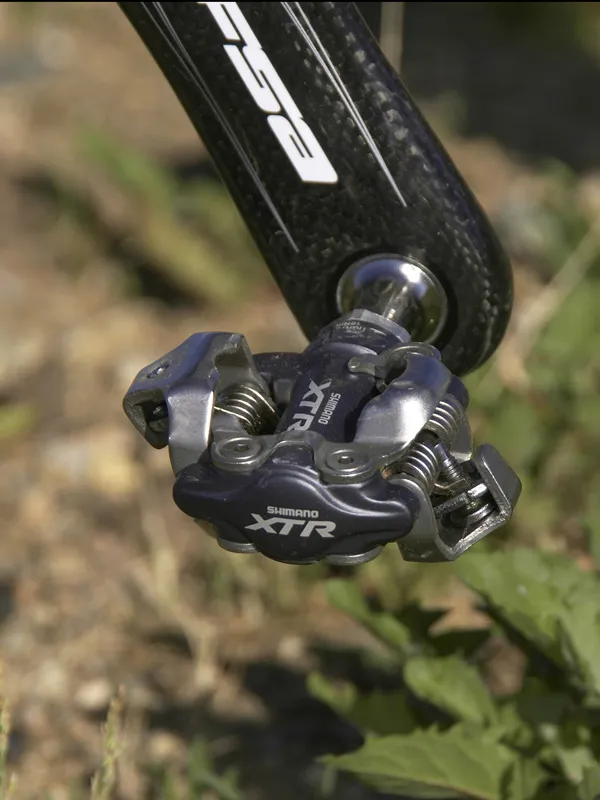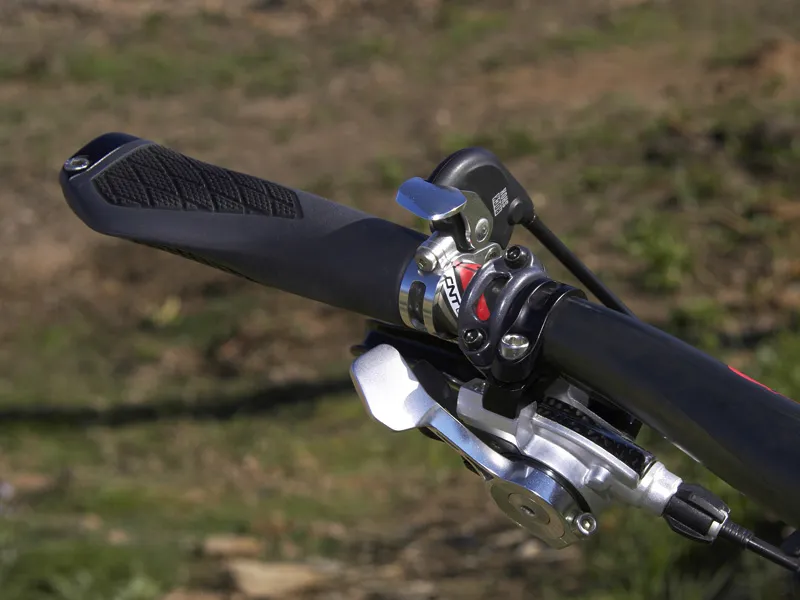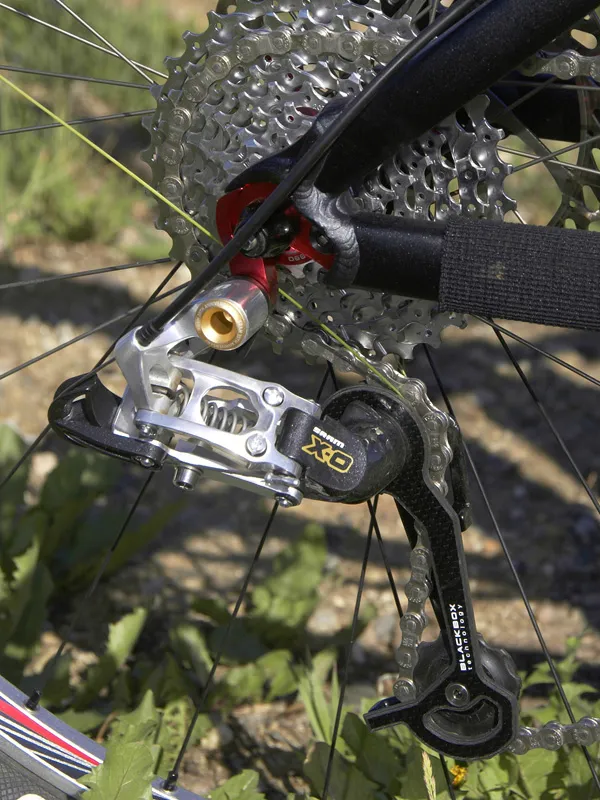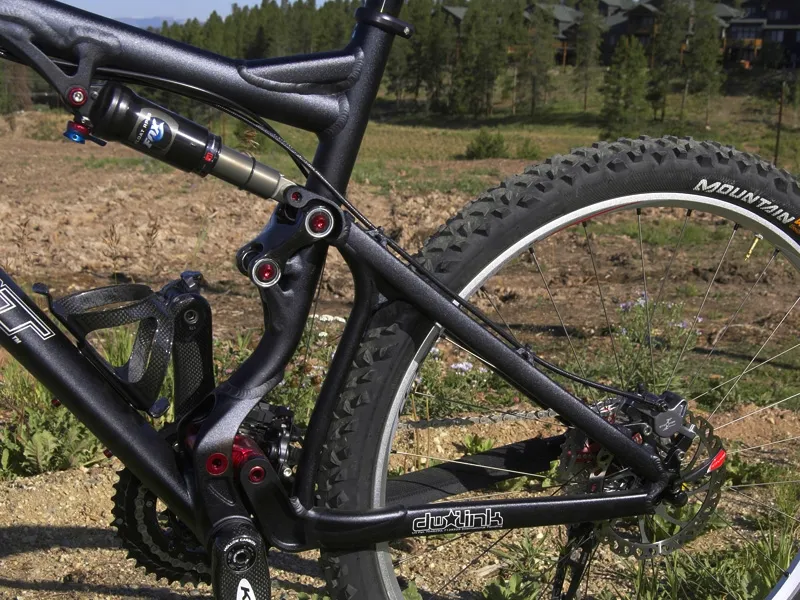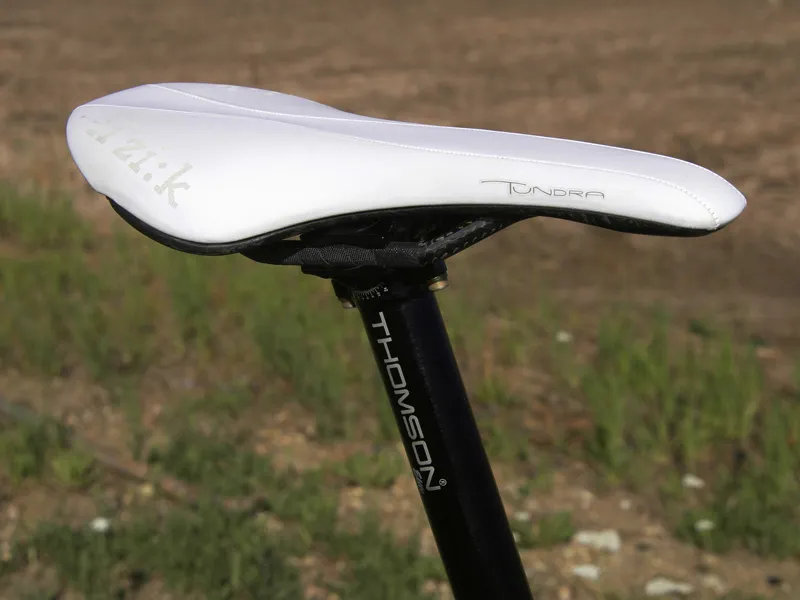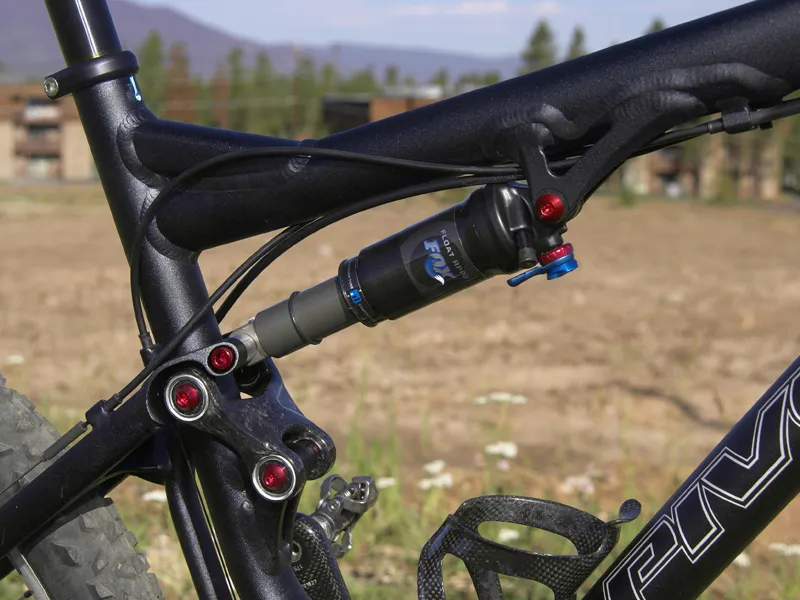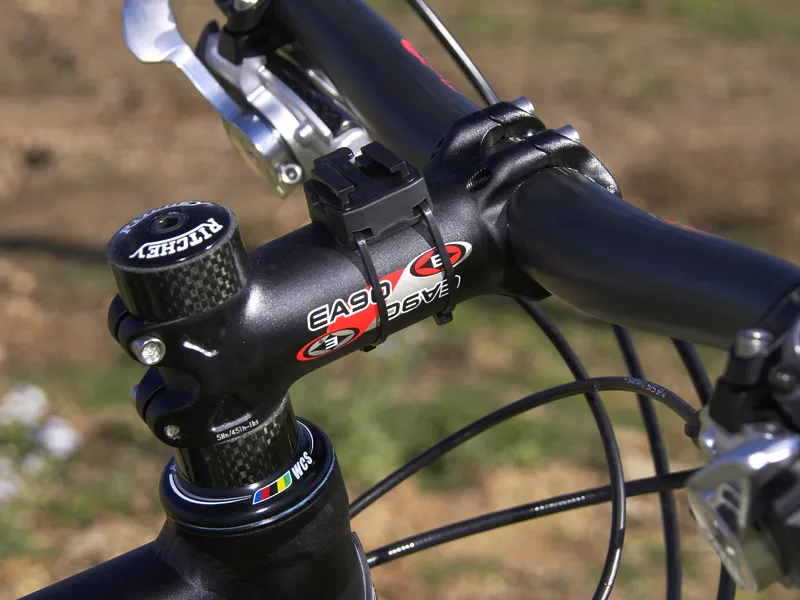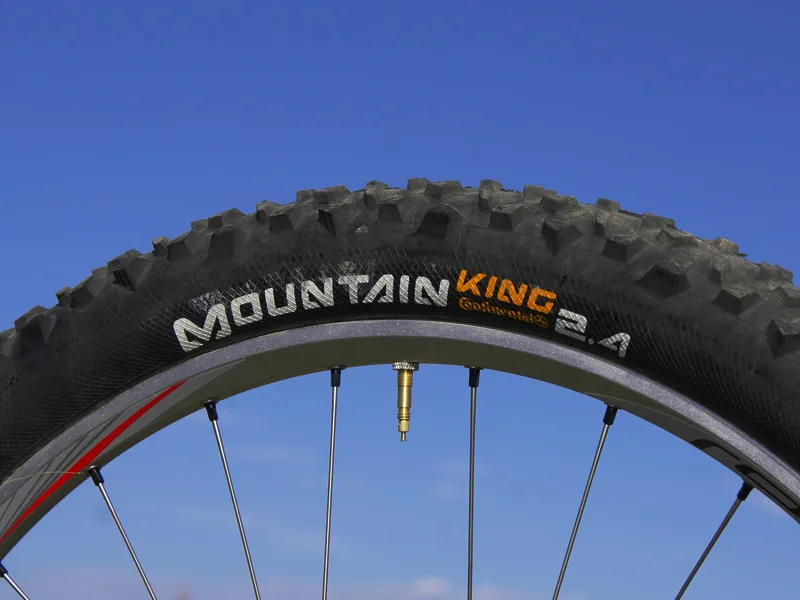Pivot Cycles’ Mach 4 is somewhat of an odd beast on paper. While its 100mm of rear wheel travel and quick cross-country geometry scream ‘race me!’, its surprisingly weighty showing at the scale is more in keeping with longer-legged trail bikes.
Thankfully for Pivot, the Mach 4 nails just about every other performance metric, though, and it feels markedly lighter on the trail than its somewhat disappointing numbers would suggest.
Ride & handling: solid and predictable, but surprisingly capable on the ups
The frame’s bomber overall stiffness translates into nary a hint of out-of-plane movement when out of the saddle and pushing hard, and both wheels stay faithfully in their intended direction even when pinballing through a field of boulders or flying across off-axis roots. Other 4in bikes are certainly lighter than the Mach 4 but few feel this solid and predictable.
Likewise, the Mach 4’s dw-link rear end results in a surprisingly capable ascender with a firm and efficient overall feel. Lay down the power and the Pivot rewards you with very good overall response. The otherwise unflappable climbing performance is only slightly sullied by just a hint of feedback when climbing in the granny on technical terrain. Though we wouldn’t say the Pivot is quite hardtail-quick when you drop the hammer, it’s still one of the sprightlier full-suspension designs out there and we rarely felt the need to flick the ProPedal lever on the included Fox RP23 rear shock.
Bump performance was simply superb, with well-tuned shock rates and excellent trail feel throughout the travel range that is neither too isolating nor too harsh, provided you put in the necessary time to dial in the somewhat sensitive shock pressure. Small impacts are faithfully erased, bigger hits are swallowed up in a manner that belies the Mach 4’s modest rear wheel travel and square-edged impacts that can disrupt lesser designs are evened out without impeding forward motion. Not to be overlooked, either, is the fact that the Pivot manages to do all this in utter silence.
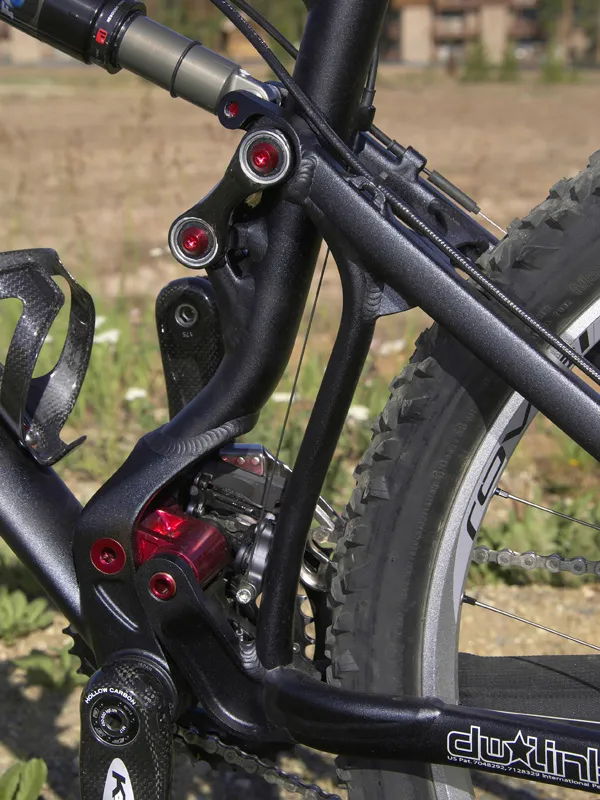
If all of this makes the Mach 4 sound more like a short-travel trail bike, that’s because that’s pretty much what it is and also how we ended up using it most. We easily kept pace with (and even caught) an experienced riding partner who was on what should have been a much faster 6in-travel machine as we descended out of Colorado’s Kenosha Pass trail.
Even so, the Mach 4 is still a capable race rig, as we discovered during the recent 24 Hours of Moab. Time lost on the climbs was due almost entirely to lack of fitness which we dutifully made up for by bombing the technical and unrelentingly rocky descents, especially during night laps. We intentionally made no efforts to go easy on our tester during any of our four laps yet the only maintenance required was some occasional chain lube.
Racers or climbing specialists looking to shave every last gram will undoubtedly scoff at the Mach 4’s weight disadvantage over much of its 100mm-travel competition. However, the extra frame stiffness, vault-like feel and superb suspension that come with that extra weight mean the Mach 4 can be pushed faster and harder through rougher terrain than we would typically expect of bikes in this category and we would also expect it to hold up better in the long run.
As such, riders who don’t necessarily place weight at the top of their priority scale and who are looking for something a little more substantial than your typical one-season race rig would be well served to pay the Pivot a closer look.
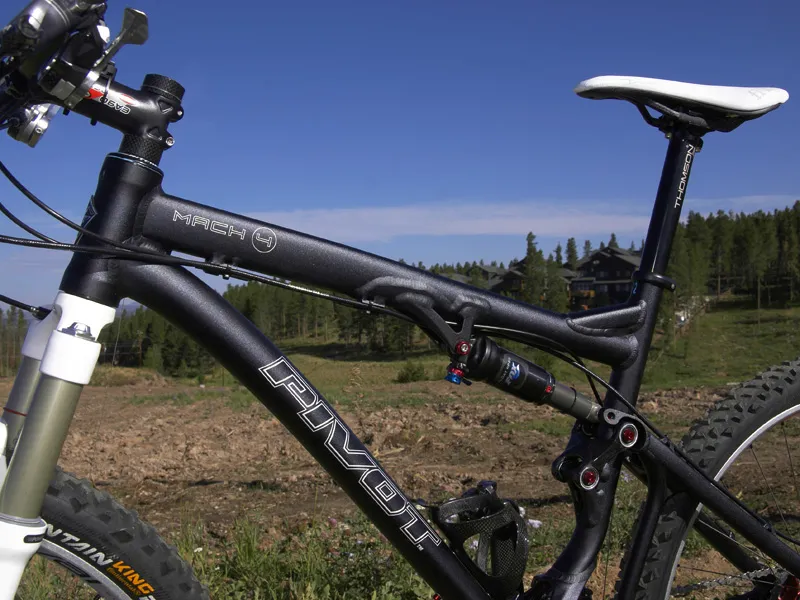
Frame: flex-free but no featherweight
Our medium-sized Mach 4 bare frame falls on the wrong side of the 2.8kg (6.2lb) mark (with shock, seat collar and derailleur hanger) but at least the extra mass has been put to good use as the triple-butted 6000-series aluminum frame is one of the stiffest short-travel platforms we’ve tested in recent memory.
The bottom bracket area is particularly well bolstered, being designed around Shimano’s new press-fit bearing cups and with a healthy 90mm width as a result. Pivot takes full advantage of this with a monstrously broad, ovalized and even slightly asymmetric down tube at one end and a unique wide-set split seat tube design that straddles the eight-bearing lower suspension link at the other.
The multi-shape top tube and internal-type head tube are similarly beefy in dimension and the oversized seat tube is even bolstered up top by a small cross member. Flex? Sorry, you won’t find any here.
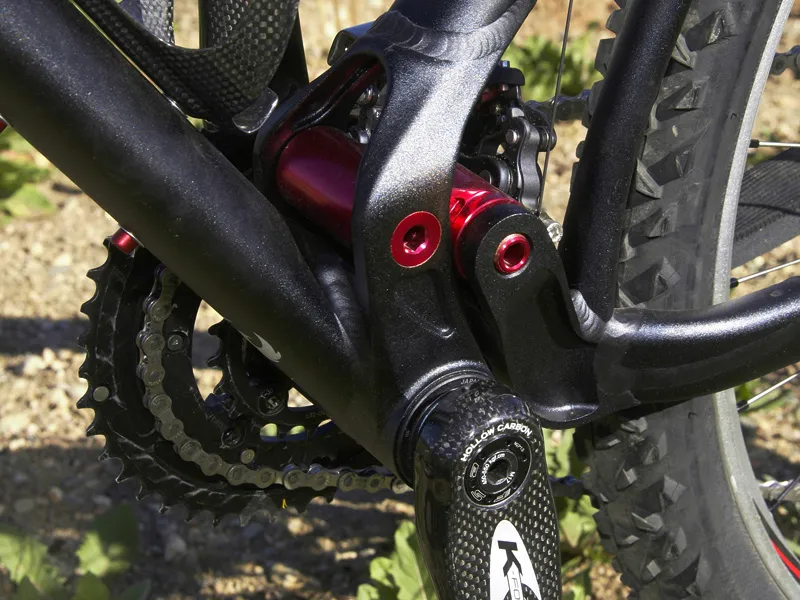
Equipment: integrated components save a few grams
Our Mach 4 arrived as a bare frame so we built it up with a mix of light-yet-durable components of our own choosing. Total weight came to 11.53kg (25.42lb), complete with a pair of Shimano XTR pedals.
In Pivot’s defense, some of the Mach 4’s heft is offset by its integrated componentry. The press-fit bottom bracket cups save a handful of grams as does the chain-tracking (and excellent shifting) direct-mount front derailleur but still, the Mach 4 strikes us as a tad overbuilt and could stand to lose a good hunk of mass to make it a little more appealing.
Pivot has introduced a new SL Carbon build kit which reportedly brings the total bike weight down to a more race-ready and competitive 9.68kg (21.3lb) without pedals, which is roughly in keeping with some of the latest and greatest carbon rigs out there. Even so, that complete bike also carries with it a hefty US$7695 (£4860) price tag and it goes without saying that a lighter frame would bring the weight figure down even further.
